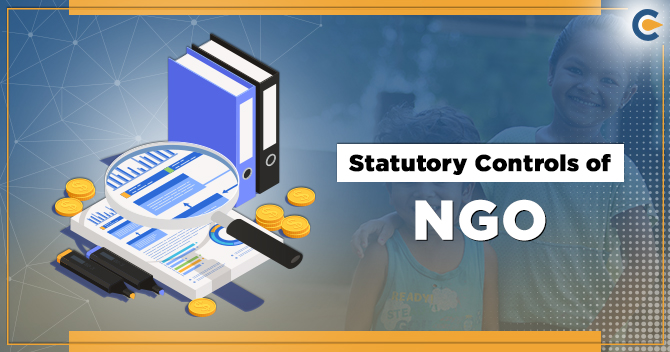At the very beginning, legal platforms are of the opinion that, in case of a charitable or religious institution, they can set off excess expenditure of one year on the income of another year. It is the application of income under section 11 of the Income-Tax Act, 1961[1].


There is a close consensus between the judicial panels that when the trust spends more than the income generated in a single year, the excess expenditure may be carried ahead and set off against the incomes of later or following years. In support of the view described above, the critical judgments of the High Courts as other Benches of the Tribunal are discussed as follows:
The income of the trust has to appear at having due consideration to commercial principles
Case:- GovinduNaicker Estate Vs. ADIT [2001] 248 ITR 368 (Mad) : 167 CTR 303 (Mad)
- At the very source, it held in this case that the income of the trust has to appear having due consideration to commercial systems. With this, the object of the charitable trust can only accomplish by incurring and bear expenditure; therefore, the trust should have the minimum of its income.


- As long as the cost is on religious or charitable purposes, the expenditure incurred by the trust would not be liable to tax charges. If the cost incurred in a previous year gets set off against the income of a later year, it has to believe that the trust had acquired expenditure on a religious and charitable purpose from the income of the following year.
- However, if the actual spending was in the earlier years and had been set-off against the income of the following year, the expense that can be so adjusted can only be an expense on religious and charitable purposes and in no additional ways. It was held in a case by the Madras High Court, that expenditure acquired by a trust on charitable or religious purposes in preceding years could settle against the income of the subsequent year, ‘irrespective of the source of income’ under which it has acquired.
The trust is entitled to set-off the amount of excess utilization of income of the last year against the insufficiency of the present year.
Case: – CIT Vs.Matriseva Trust [2000] 242 ITR 20 (Mad) : 158 CTR 433 (Mad)
It held in this case that the assessee (trust) was allowed to set-off the amount of excess utilization of income of the last year upon the deficiency of the present year. With this, the Madras High Court has followed the judgments of the High Court of Rajasthan and Gujarat in the following cases:
CIT Vs. Maharana of Mewar Charitable Foundation [1987] 164 ITR439 (Raj): 60 CTR 40 (Raj)
The wording of this case says that where a trust acquires excess expenditure in a year, set-off of such excess against following year’s income is an application under section 11(1)(a) of the Act.
CIT Vs. Shri Plot SwetamberMurtiPujak Jain Mandal- [1995] 211 ITR 293 (Guj) : [1994] 119 CTR 144 (Guj)
The wording of this case regards to the benevolent provisions contained in section 11 and commercial principles. As a result of this, the deficit arising out of expenses acquired by assessee trust for charitable and religious purposes over income derived from trust property for the applicable year can be set-off against the excess of income in the succeeding year.
Charitable Trust under section 11 should adjust the application of income for Subsequent Years.
Case: – CIT vs. Institute of Banking [2003] 264 ITR 110 (Bom): 185 CTR 492 (Bom)
- The wording of this case says that in case of a charitable trust whose income excluded under section 11, excess of an expense in the earlier years can get balanced up against income of subsequent years. Therefore, such an arrangement would be the application of income for the following years.
- Argument: In the case mentioned above, the Assessing Officer did not allow to carry forward of excess of expense to be set-off upon the surplus of the following years. It gets deliberated on the ground that their income was assessable under ‘self-contained code’ specified in section 11 to section 13 of the Act. Moreover, it was the income of the charitable trust. It was not assessable under the ‘Profits and gains of business‘ under section 28 to carry forward losses.
- Contentions: – It got further contested by the Income Tax Department that in the case of a charitable trust, there was no stipulation for carry forward the excess of the expense of earlier years to get balanced against the income of succeeding years.
- Final Sayings: – It was held by the High Court that there was no merit in the argument described above of the Department. It says that the judgment of the Gujarat High Court supports the view above in the case of CIT Vs. Shri Plot Swetamber Murti Pujak Jain Mandal – [1995] 211 ITR 293 (Guj).
No words of limitation explaining on the rising of income applied for Charitable/Religious Purpose.
Case:- CIT Vs.Maharana of Mewar Charitable Foundation [1987] 164 ITR 439 (Raj) : 60 CTR 40 (Raj)
The initial wordings of the case says that, where the trust incurs excess expenditure in a year set-off of such excess against following year’s income, it is an application for purposes of section 11(1)(a) of the Act.


Moreover, it held that there are no words of limitation in section 11, describing that the income should have applied for charitable or religious objects only in the year in which the revenue had risen. Even if the expenses for charitable purposes have incurred in the earlier year, income can be said to have applied for charitable and religious purposes in which the costs incurred.
Read our article:Application of Income Conditional Precedent as to section 11 Exemption
The deficit of the current year can get adjusted against the income of the following year.
Case: –DIT Vs.Raghuvanshi Charitable Trust [2010] 44 DTR 223 (Del)
The original wordings of the case say that the deficit (excess of expenditure over income) of the current year can get settled against the income of the following year. The same would amount to the application of income for charitable purposes in the subsequent year, within the meaning of section 11(1)(a).
In this judgment, dependency has ordered on the following judgments:
- CIT Vs.Shri Plot SwetamberMurtiPujak Jain Mandal- [1995] 211 ITR 293 (Guj) : [1994] 119 CTR 144 (Guj)
- CIT Vs.Maharana of Mewar Charitable Foundation [1987] 164 ITR 439 (Raj) : 60 CTR 40 (Raj)
- CIT Vs. Institute of Banking [2003] 264 ITR 110 (Bom) : 185 CTR 492 (Bom)
- CIT VsM atriseva Trust [2000] 242 ITR 20 (Mad) : 158 CTR 433 (Mad)
In this type of connection, it will be essential to report that in paragraph (9) of the judgment described above, five High Courts have interpreted the provision identically and similarly. The learned Counsel for the Revenue Department could not show any judgment where any other High Court has taken a contrary view. Thus, it is clear that on the issue under consideration, no High Court has taken a different look.
Trust property computed on commercial principles would get excluded from the income of the trust under section 11(1)(a)
Case:- ITO Vs. Kaivalya Education Foundation (ITAT Mumbai)
- As a result of this case, assessee (trust) got entitled to claim excess expense over income being deficit to be taken forward for setting it off in the following years as income. Such income should get derived from trust property that had to get counted on commercial principles.
- If commercial principles/policies get implemented, then adjustment of expenses acquired by the trust for charitable and religious purposes in earlier years against income received in subsequent years would be considered as an application of income in the following year. It will have regards to the provisions contained in section 11, and such modification would get eliminated from the income of the trust under section 11(1)(a).
Claim on the depreciation of assets and carry forward of Expenditure by Trusts/NGOs
Case:-Income Tax Appellate Tribunal, Delhi (ITAT) in DCIT(E) v. Smt. Angoori Devi Educational & Cultural Society
According to a recent judgment, two fundamental questions concerning the taxation of trusts have reviewed:
- Whether devaluation/depreciation can get provided on assets that have acquired out of contributions collected, which were exempt from tax since the assumed expense have identified as application of income in the past years under ‘Section 11 of the Income Tax Act, 1961’;
- Whether excess expense incurred by a trust in a previous assessment year could be permitted to set off against the income of the following year? Moreover, if the delay in filing the return, such carry forward can get disallowed under section 80 of the IT Act or not.
Rationale of the Abstracts
- Only for the year of 2015-2016, charitable trusts can claim depreciation covering the assets, even where the value of the property got approved as application of income under Section 11 of the Income Tax Act in the previous year.
- By means of disregarding the above statement, this benefit would not be available after the year of 2015-16 after amendment in the law. Therefore, it is essential for such trusts to assure careful usage of their funds and not spend in income-generating assets unless such income also can be applied for the charitable purpose.
- As a result of this, Section 80 of the IT Act gets applicable for carry forward of losses for commercial organizations that would not be suitable to deny this benefit to charitable foundations. It is a notable relief, particularly to smaller charitable organizations that struggle to get their accounts settled before the due date of filing of returns.
Conclusion
Charitable organizations are entitled to carry forward excess expenditure in one year to the following years towards the application of income, even if there is a pause or delay in filing the tax return in the year of inciting the excess of expenditure over income. By attending the case laws as mentioned above, the favor views that a trust is allowed to set off the excess expenditure contracted in earlier years against the income of a later year. Moreover, this blog is entirely for informational purposes, and it does not convey any expert advice & preferences. We at CorpBiz have legal consultants to help you with the process of setting of your expenses for your charitable reflections, ensuring the fruitful and timely fulfilment of your work.
Read our article:Guide on Section 2(15) of the Income Tax Act and its Impact – Get the Complete Outlook!











